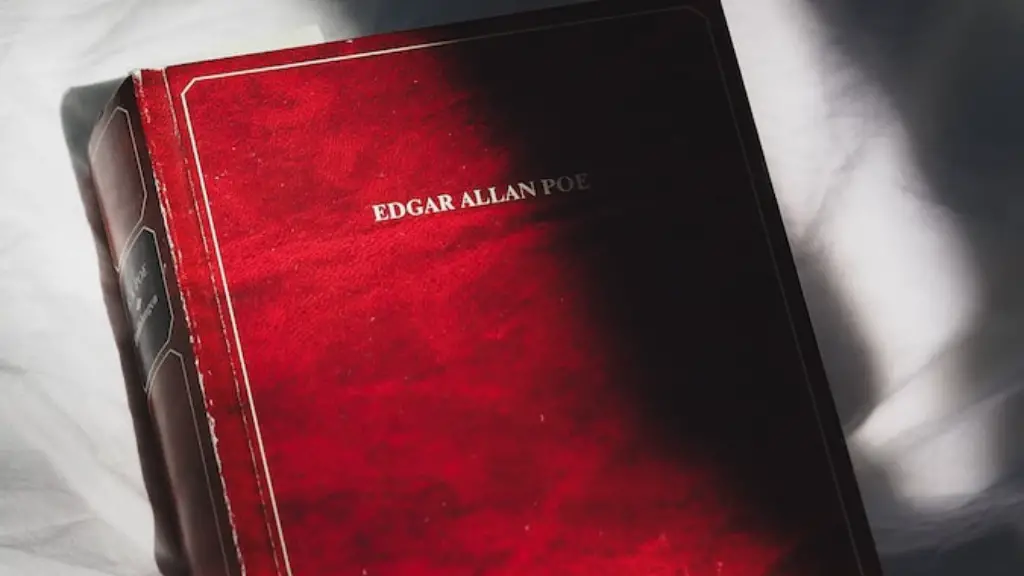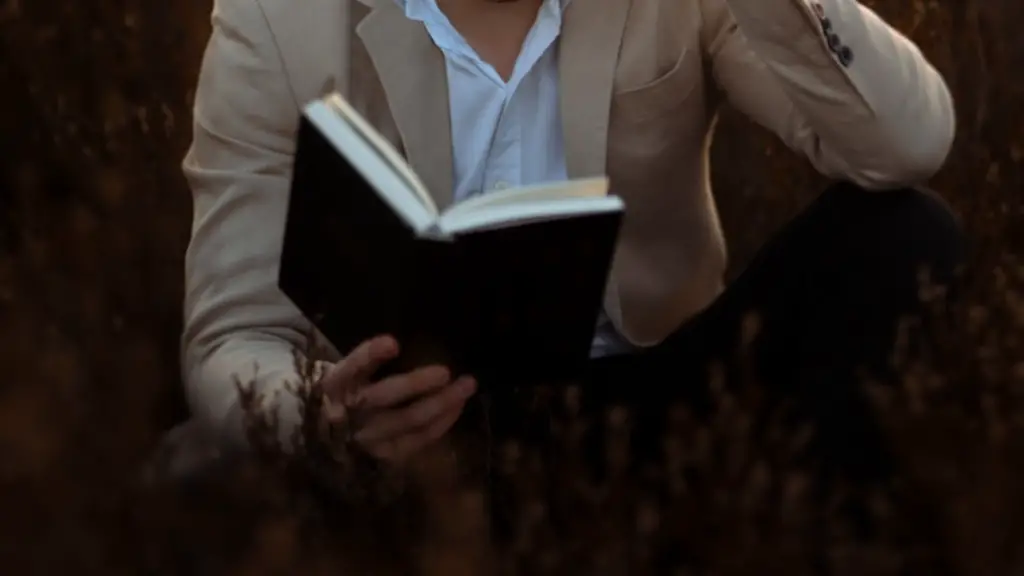An elegy is a poetic form which has been used for centuries to express feelings of loss, sorrow and grief. It has been used in different cultures throughout history and is known for its melancholic and reflective tone. Elegy is derived from the Greek word ‘elegeia’, meaning ‘mourning song’, and is still used today to commemorate people who have passed away.
The traditional form of an elegy is usually written in iambic pentameter, in three main sections: an invocation, a narrativisation of the grief, and a reflection on the departed. In an invocation, the poet opens the poem by addressing the person they are mourning, either directly or indirectly. This section often includes a detailed description of the scene and the surroundings, as well as the emotions felt. The narrative section then follows, which is often full of vivid imagery and heartbreaking descriptions of the sorrow and mourning. The final section reflects on the departed, sharing memories and paying tribute to the deceased.
The most famous example of an elegy is Thomas Gray’s ‘Elegy Written in a Country Churchyard’ from the 18th century, one of the most famous poems of all time. The poem uses vivid imagery to evoke an atmosphere of sadness and introspection, as well as to develop the main theme of mortality.
In modern poetry, elegies have moved away from the traditional form, and different poets have experimented with the form to create something new and individual. Some modern elegies have focussed on contemplating the life of the departed, instead of wallowing in grief, while some have addressed wider themes such as politics and society.
The unprecedented events of the Covid-19 pandemic has had a huge impact on the world, both socially and culturally, and it has had an effect on the way poetry is written. The themes of loss, grief and remembrance have become central to poetry, both in the traditional form and in more innovative ways. Over the last year, many poets have written elegies for those who died due to the virus, ranging from creative pieces of art to simple commemorations of the lives lost.
Elegies have become an important part of modern society, as people use them to commemorate the lives of the ones they have lost. They also represent a source of comfort, providing a way to express sadness and grief in a meaningful and powerful way. It’s important to remember that elegies are not just used to honor the deceased, but also to keep their memory alive and provide a source of consolation for those who are still living.
The Elevation of Elegy in Modern Poetry
In the last few years, elegies have become increasingly popular in modern poetry. Writers have begun to explore and expand the traditional form of the elegy, using the form to examine various subjects in a creative and meaningful way. The speculative elegy is one example of this, where the poem contemplates the theme of mortality and the afterlife, exploring questions about death that cannot be answered. Additionally, there has also been a focus on exploring the power of poetry in challenging times, as poets have used elegies to lend their voices to the events that have taken place in recent years.
Elegies today have evolved from a traditional form into something that can be used to express a range of emotions relating to loss, grief and mourning. With modern poets finding creative ways of expressing these feelings, elegies have become a powerful and versatile poetic form.
Commemorative Elegies of Modern Times
In recent years, elegies have been used to commemorate and remember events of public mourning, such as the tragedies of 9/11, the Brexit referendum and the Black Lives Matter movement. These elegies provide an opportunity for poets to reflect on the events that have taken place and express their grief, while also offering a space for people to come together and share their stories. These elegies are a unique way of giving a voice to those who have been affected, and allowing them to be heard.
The grief of these tragedies has been felt around the world, and poets have found creative ways to express their sadness. The elegies that have been written are uniquely powerful, as they grapple with the complexity and magnitude of the losses that have been suffered. They also provide a sense of hope and solace, as the poems remember and celebrate the lives of those who have been taken too soon.
Elegies as a Creative Expression
Elegies have come to represent more than just mourning and grief; they have become a way of exploring the loss and its meaning in more creative and imaginative ways. Poets have begun to experiment with the form, writing dreamlike elegies that explore the depths of the emotional response to loss, as well as surreal elegies that use surrealistic imagery to express the same feelings.
The combination of both traditional and innovative elements has allowed the elegy to become a powerful and flexible form of creative expression. By taking advantage of the form’s flexibility, poets are able to create unique pieces of literature that evoke powerful emotions.
The Power of Elegy
The power of the elegy lies in its ability to move people and its ability to express powerful emotions in a meaningful and creative way. With its focus on grief, loss and remembrance, the elegy has become a tool for both lamenting and celebrating the lives that have been lost. For modern poets, the elegy is an important part of their expression, allowing them to delve into their emotions and create works of art that are both personal and poignant.
The elegy has been used for centuries to commemorate and celebrate the lives of those who have passed away, and it will continue to be used in the same way for years to come. It is a powerful tool of remembrance, and its ability to be used in creative and imaginative ways has made it an essential part of modern poetry.
Elegy and its Place in Society
Today, elegies are more important than ever in commemorating events and offering a space for people to come together to mourn their losses. The elegy has become a powerful tool in the way of expressing emotions and exploring the meaning of death. Its unique ability to be both traditional and innovative has made it an essential part of modern poetry.
The use of elegies in poetry can also be seen as a way of acknowledging the losses that have been suffered, and as a way of honoring those who have been taken from us too soon. In this way, elegies offer comfort and solace to those who are left behind, while also providing a sense of closure and peace.
The Significance of Elegy
The elegy has been used for centuries to honor and commemorate lost ones, and it is still as relevant today as it was in the past. In modern times, elegies have served as a way for poets to express their grief and sorrow, as well as explore the deeper meaning behind death and loss. By blending the traditional and the innovative, poems are able to capture the complexity and magnitude of grief.
The elegy has become an important part of modern society and culture, and its relevance will continue for years to come. By providing a space for writers to grapple with complex emotions and explore difficult themes, elegies have become an essential part of modern poetry.




